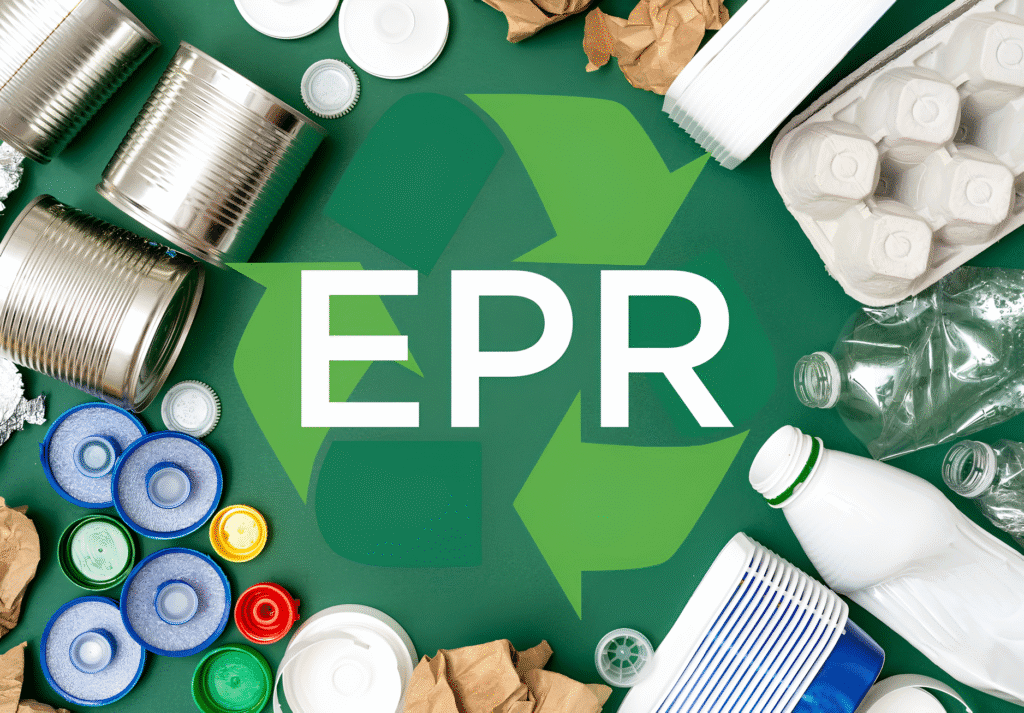The Government of Vietnam has recently issued Decree 05/2025/ND-CP, which amends and supplements several articles of Decree 08/2022/ND-CP, providing detailed regulations for the Environmental Protection Law. This new decree introduces significant changes to mandatory recycling requirements, known as Extended Producer Responsibility (EPR), that businesses, manufacturers, and importers must be aware of.
Mandatory Recycling Rates and Specifications
The new decree clarifies and adjusts the regulations on mandatory recycling.
- Mandatory Recycling Rate: This is defined as the minimum volume of products and packaging that must be collected and recycled according to mandatory specifications. This rate is calculated based on the total volume of products and packaging produced or imported and placed on the market during the year. The rates for each product type will be determined based on their lifecycle, disposal rates, and national recycling goals. These rates will be regulated for the first three years and then adjusted every three years to increase gradually.
- Mandatory Recycling Specifications: This is one of the most notable changes. The new decree shifts the focus from a minimum recovery amount of materials or fuel to specific recycling solutions chosen for each type of product or packaging. This approach offers greater flexibility and is more aligned with practical implementation.
The decree also specifies that manufacturers and importers can recycle their own products or similar products from other businesses to meet their mandatory recycling rate. However, recycling imported scrap, industrial waste, or defective products will not be counted towards this rate.
Furthermore, a new provision allows manufacturers and importers who exceed their mandatory recycling rate to carry over the excess volume to be counted in subsequent years.
Regulations Tailored to Practical Implementation
Decree 05/2025/ND-CP addresses practical challenges and makes the implementation of recycling responsibilities more manageable for businesses.
- Timing of Responsibility: The recycling responsibility will now be fulfilled after the end of the year, based on the actual volume of products and packaging produced and imported. This is a change from the previous requirement to register a planned volume. Businesses that recycled more than their planned volume in 2024 can carry over the excess for their 2025 results.
- Exemptions: The decree provides several exemptions to reduce the burden on businesses. Manufacturers and importers of chewing gum are no longer required to fulfill recycling responsibility for their product packaging. Similarly, businesses that retrieve and reuse their own packaging (e.g., beverage bottles) are also exempt.
- Determining Responsibility: The new rules for determining which businesses are subject to the recycling responsibility are based on the revenue from products with packaging that must be recycled, not total revenue or import value. This makes the policy fairer and easier to implement for businesses.
Financial Contributions to the Vietnam Environmental Protection Fund
For businesses that choose to make a financial contribution instead of recycling, the decree provides new guidelines:
- Deadlines: Financial contributions must be paid in full by April 20th of the declaration year.
- Use of Funds: The contributions, along with interest from bank deposits, will be used to support recycling activities, including sorting, collection, transportation, and processing. A portion will also be allocated for managing and supervising the recycling responsibilities.
- Transparency: The reception and use of these funds must be transparent and publicly disclosed. The Vietnam Environmental Protection Fund is required to report to the Ministry of Natural Resources and Environment and the National EPR Council annually.
- Contribution Rates: The financial contribution rates for each product type will be specified, and the Minister of Natural Resources and Environment will adjust these rates every five years. The management and supervision cost is capped at 2% of the financial contribution.
The new decree is expected to create a more realistic and effective legal framework, encouraging businesses to actively participate in national environmental protection efforts.
Source: Collected from the Internet.


Related Posts
Vietnamese Lunar New Year A Cultural Beauty That Honors Ancestral Roots And The Sacred New Year’s Eve
HAPPY LUNAR NEW YEAR – VMRF
Repealing the 2009 Endangerment Finding: The First Move in a Long Planned Effort to Rebuild America’s Metallurgical Base
List of Permitted Scrap Imports: A Policy Adjustment to Tighten Environmental Control and Reshape Industrial Raw Material Supply Chains
Tightening Scrap Temporary Import and Re-export: Vietnam Proactively Blocks the Risk of Becoming a Global “Dumping Ground”
Import Policy Trends for Industrial Metal Scrap and Metal-Bearing Waste in Southeast Asia